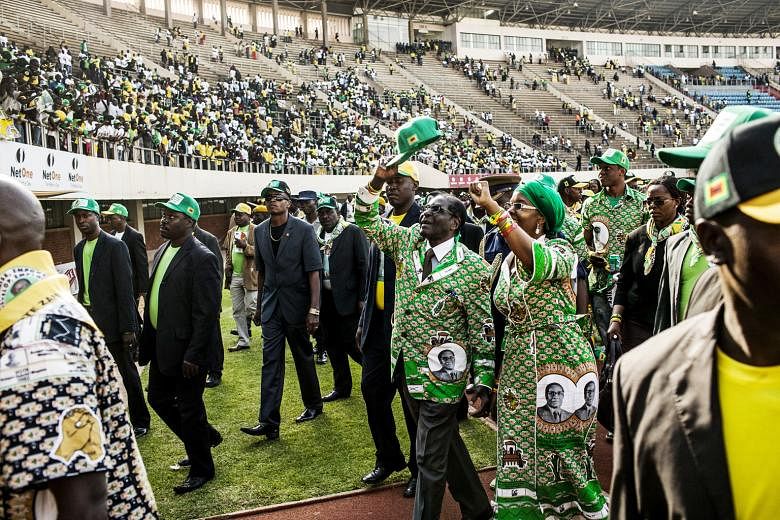HARARE • When he came to power, Zimbabwe's Mr Robert Mugabe was feted as an African liberation hero in a country that had endured nearly a century of white colonial rule.
Educated and urbane, Mr Mugabe took power after seven years of a liberation bush war. But nearly four decades after independence in 1980, many see him as power-obsessed and willing to unleash death squads and rig elections in the relentless pursuit of control.
The 93-year-old, who travels frequently to Singapore for medical treatment as age has taken its toll, is the only leader Zimbabwe, formerly Rhodesia, has known since independence from Britain.
While the West regards him as an autocrat, some in Africa see him as an anti-colonial champion.
Born in a Catholic mission near Harare, Mr Mugabe was educated by Jesuit priests and worked as a primary school teacher before going to South Africa's University of Fort Hare, then a breeding ground for African nationalism.
Returning to Rhodesia in 1960, he entered politics but was jailed for a decade four years later for opposing white rule. After his release, he rose to the top of the powerful Zimbabwe African National Liberation Army, known as the "thinking man's guerilla" on account of his seven degrees.
After the long bush war ended, Mr Mugabe was elected as the nation's first black prime minister. But it was not long before he began to suppress challengers such as liberation war rival Joshua Nkomo. Human rights groups say 20,000 people died, most from Mr Nkomo's Ndebele tribe.
After two terms as prime minister, Mr Mugabe changed the Constitution and was elected president in 1990, shortly before the death of his first wife, Sally, seen by many as the only person capable of restraining him.
At the end of the century, he lost a constitutional referendum followed by a groundswell of black anger at the slow pace of land reform and invasion of white-owned farms. The farm seizures helped ruin one of Africa's most dynamic economies, with a collapse in agricultural foreign exchange earnings unleashing hyperinflation.
The economy shrank by more than a third from 2000 to 2008, sending unemployment above 80 per cent. Several million Zimbabweans fled, mostly to South Africa.
In 2008, exasperated Zimbabweans supported the challenge of Western-backed former union leader Morgan Tsvangirai. A worried South Africa squeezed the pair into a fractious unity coalition.
In the 2013 election, Mr Mugabe's agents engineered a landslide by manipulating the voters' roll, the Tsvangirai camp said.
"To give the devil his due, he is a brilliant tactician," a former US envoy wrote of Mr Mugabe in a cable released by WikiLeaks.
REUTERS

